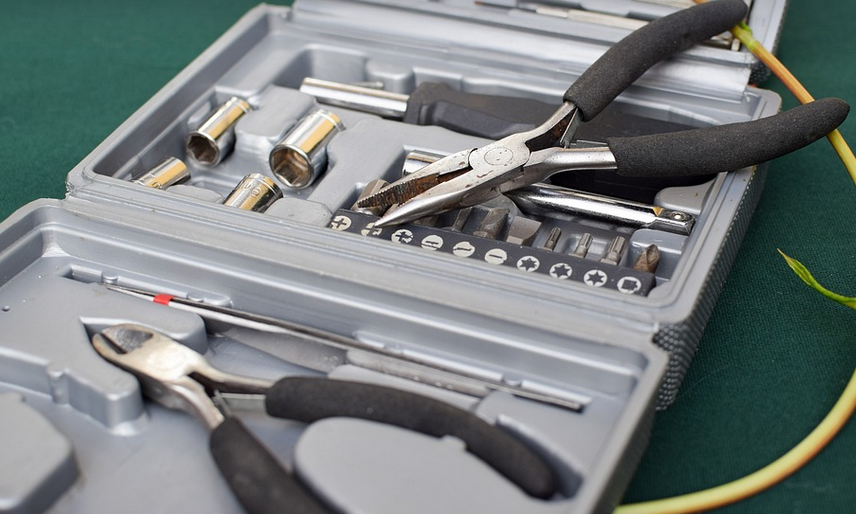A Quick Guide to Sealing Your Concrete: Separating Myths from Reality
Ever wondered if you can just slap some asphalt sealer on your concrete and be done with it? While the idea might seem tempting, especially when you’re looking for a DIY project to enhance your outdoor spaces, the answer is often a bit more nuanced.
Sealer is essentially like armor for your concrete, protecting it from harsh elements like sun, rain, and even those pesky spills that seem to find their way onto our concrete surfaces.
Concrete, while durable in its own right, needs protection against the wear and tear of everyday life. Applying asphalt sealer over concrete can be a viable solution for some situations, but it’s not as straightforward as simply slapping on some sealant. It comes with specific guidelines and considerations that you need to keep in mind
Think of it this way: asphalt sealers are designed to protect the surface of asphalt from various environmental factors. But when applied directly over concrete, there can be a few challenges.
Let’s dive into some key factors that influence the process and answer your burning question – can you put asphalt sealer over concrete?
**Understanding the Concrete Surface**
First, let’s talk about the surface itself. Concrete is known for its strength but also for being relatively porous. Porosity means it can absorb liquids, allowing water to seep in and potentially cause damage if left untreated.
This can lead to issues like efflorescence (white powdery deposits that appear on your concrete) or even freeze-thaw cycles that can crack the surface over time. It’s vital to understand that asphalt sealers are not a true fix for these porous concerns.
**The Asphalt Sealer Plays its Part**
But, asphalt sealer does provide benefits like increased stain resistance and water repellency. This protection helps prevent stains from appearing on your concrete surface as well as minimizes the risk of damage caused by weather and spills.
However, it’s not a magical solution for all concrete issues. The sealer will work best when applied correctly to existing concrete surfaces that have been properly prepped.
**Preparing Your Concrete:**
Before you even consider applying any sealant, proper preparation of the concrete surface is key. It’s like preparing your canvas for a masterpiece! This involves:
* **Cleaning:** Get rid of all dirt, dust, oil, and other debris from the surface. Pressure washing can be helpful here. * **Repairing:** Fill in any cracks or holes that might compromise the integrity of your concrete surface. * **Leveling:** If you have uneven spots on your concrete, consider leveling them out before applying sealant. This ensures an even application.
**Choosing the Right Asphalt Sealer**
There are different types of asphalt sealers available in the market, each with its own set of advantages and disadvantages. Here’s a quick rundown:
* **Acrylic-based:** These are water-based sealants that provide good UV protection and are easy to apply. * **Epoxy-based:** This type of sealer offers superior resistance against oils and stains, but it can be more complex to apply. * **Silicone based:** These sealers offer excellent waterproofing capabilities and provide a flexible finish.
When making your selection, consider the specific needs of your concrete surface and the expected usage of the area.
**Application Techniques: A Matter of Precision**
Applying asphalt sealer is not as straightforward as it sounds. It requires some finesse to ensure proper penetration and coverage. Some general guidelines include: * **Stirring:** Make sure to stir your chosen sealant well before applying it, ensuring even distribution. * **Thin Coats:** Apply thin coats of the sealer, allowing for minimal pooling and excess product on your concrete surface. * **Timely Drying:** Allow ample time for the sealer to dry completely before using the area again.
**Choosing a Professional: When in Doubt**
Applying asphalt sealers over concrete can be an intricate process, requiring specific knowledge and expertise. If you’re not confident about doing it yourself or if your concrete surface has complex issues, consider reaching out to a professional contractor for help.
**The Benefits of Sealing Concrete: A Final Word**
While the process might seem daunting at first, sealing your concrete with asphalt sealer can be a worthwhile endeavor. It adds an extra layer of protection against the elements, enhances its aesthetic appeal, and extends its lifespan. Ultimately, it helps you enjoy your outdoor spaces for years to come.
**Resources to Further Explore**
For more information on concrete sealing and other DIY projects, visit these resources:
* The National Concrete Masonry Association (NCMA) – https://www.ncma.com/ * American Concrete Institute (ACI) – https://www.concrete.org/
Remember, with careful planning and execution, you can effectively seal your concrete surfaces to protect them from the elements and enjoy their beauty for years to come.
Please feel free to ask any further questions if you have them about asphalt sealer or concrete sealing. We’re here to help!
